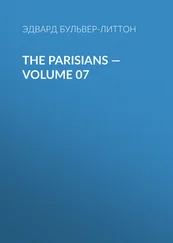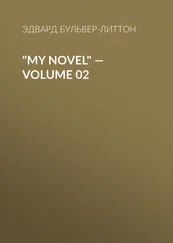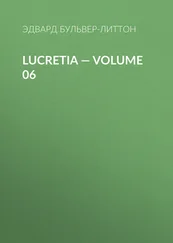Эдвард Бульвер-Литтон - Zanoni
Здесь есть возможность читать онлайн «Эдвард Бульвер-Литтон - Zanoni» — ознакомительный отрывок электронной книги совершенно бесплатно, а после прочтения отрывка купить полную версию. В некоторых случаях можно слушать аудио, скачать через торрент в формате fb2 и присутствует краткое содержание. Жанр: foreign_prose, literature_19, Европейская старинная литература, foreign_antique, на английском языке. Описание произведения, (предисловие) а так же отзывы посетителей доступны на портале библиотеки ЛибКат.
- Название:Zanoni
- Автор:
- Жанр:
- Год:неизвестен
- ISBN:нет данных
- Рейтинг книги:4 / 5. Голосов: 1
-
Избранное:Добавить в избранное
- Отзывы:
-
Ваша оценка:
- 80
- 1
- 2
- 3
- 4
- 5
Zanoni: краткое содержание, описание и аннотация
Предлагаем к чтению аннотацию, описание, краткое содержание или предисловие (зависит от того, что написал сам автор книги «Zanoni»). Если вы не нашли необходимую информацию о книге — напишите в комментариях, мы постараемся отыскать её.
Zanoni — читать онлайн ознакомительный отрывок
Ниже представлен текст книги, разбитый по страницам. Система сохранения места последней прочитанной страницы, позволяет с удобством читать онлайн бесплатно книгу «Zanoni», без необходимости каждый раз заново искать на чём Вы остановились. Поставьте закладку, и сможете в любой момент перейти на страницу, на которой закончили чтение.
Интервал:
Закладка:
I said his music was a part of the man, and this gentle creature seemed a part of the music; it was, in fact, when she sat beside him that whatever was tender or fairy-like in his motley fantasia crept into the harmony as by stealth. Doubtless her presence acted on the music, and shaped and softened it; but, he, who never examined how or what his inspiration, knew it not. All that he knew was, that he loved and blessed her. He fancied he told her so twenty times a day; but he never did, for he was not of many words, even to his wife. His language was his music,—as hers, her cares! He was more communicative to his barbiton, as the learned Mersennus teaches us to call all the varieties of the great viol family. Certainly barbiton sounds better than fiddle; and barbiton let it be. He would talk to THAT by the hour together,—praise it, scold it, coax it, nay (for such is man, even the most guileless), he had been known to swear at it; but for that excess he was always penitentially remorseful. And the barbiton had a tongue of his own, could take his own part, and when HE also scolded, had much the best of it. He was a noble fellow, this Violin!—a Tyrolese, the handiwork of the illustrious Steiner. There was something mysterious in his great age. How many hands, now dust, had awakened his strings ere he became the Robin Goodfellow and Familiar of Gaetano Pisani! His very case was venerable,—beautifully painted, it was said, by Caracci. An English collector had offered more for the case than Pisani had ever made by the violin. But Pisani, who cared not if he had inhabited a cabin himself, was proud of a palace for the barbiton. His barbiton, it was his elder child! He had another child, and now we must turn to her.
How shall I describe thee, Viola? Certainly the music had something to answer for in the advent of that young stranger. For both in her form and her character you might have traced a family likeness to that singular and spirit-like life of sound which night after night threw itself in airy and goblin sport over the starry seas…Beautiful she was, but of a very uncommon beauty,—a combination, a harmony of opposite attributes. Her hair of a gold richer and purer than that which is seen even in the North; but the eyes, of all the dark, tender, subduing light of more than Italian—almost of Oriental—splendour. The complexion exquisitely fair, but never the same,—vivid in one moment, pale the next. And with the complexion, the expression also varied; nothing now so sad, and nothing now so joyous.
I grieve to say that what we rightly entitle education was much neglected for their daughter by this singular pair. To be sure, neither of them had much knowledge to bestow; and knowledge was not then the fashion, as it is now. But accident or nature favoured young Viola. She learned, as of course, her mother’s language with her father’s. And she contrived soon to read and to write; and her mother, who, by the way, was a Roman Catholic, taught her betimes to pray. But then, to counteract all these acquisitions, the strange habits of Pisani, and the incessant watch and care which he required from his wife, often left the child alone with an old nurse, who, to be sure, loved her dearly, but who was in no way calculated to instruct her.
Dame Gionetta was every inch Italian and Neapolitan. Her youth had been all love, and her age was all superstition. She was garrulous, fond,—a gossip. Now she would prattle to the girl of cavaliers and princes at her feet, and now she would freeze her blood with tales and legends, perhaps as old as Greek or Etrurian fable, of demon and vampire,—of the dances round the great walnut-tree at Benevento, and the haunting spell of the Evil Eye. All this helped silently to weave charmed webs over Viola’s imagination that afterthought and later years might labour vainly to dispel. And all this especially fitted her to hang, with a fearful joy, upon her father’s music. Those visionary strains, ever struggling to translate into wild and broken sounds the language of unearthly beings, breathed around her from her birth. Thus you might have said that her whole mind was full of music; associations, memories, sensations of pleasure or pain,—all were mixed up inexplicably with those sounds that now delighted and now terrified; that greeted her when her eyes opened to the sun, and woke her trembling on her lonely couch in the darkness of the night. The legends and tales of Gionetta only served to make the child better understand the signification of those mysterious tones; they furnished her with words to the music. It was natural that the daughter of such a parent should soon evince some taste in his art. But this developed itself chiefly in the ear and the voice. She was yet a child when she sang divinely. A great Cardinal—great alike in the State and the Conservatorio—heard of her gifts, and sent for her. From that moment her fate was decided: she was to be the future glory of Naples, the prima donna of San Carlo.
The Cardinal insisted upon the accomplishment of his own predictions, and provided her with the most renowned masters. To inspire her with emulation, his Eminence took her one evening to his own box: it would be something to see the performance, something more to hear the applause lavished upon the glittering signoras she was hereafter to excel! Oh, how gloriously that life of the stage, that fairy world of music and song, dawned upon her! It was the only world that seemed to correspond with her strange childish thoughts. It appeared to her as if, cast hitherto on a foreign shore, she was brought at last to see the forms and hear the language of her native land. Beautiful and true enthusiasm, rich with the promise of genius! Boy or man, thou wilt never be a poet, if thou hast not felt the ideal, the romance, the Calypso’s isle that opened to thee when for the first time the magic curtain was drawn aside, and let in the world of poetry on the world of prose!
And now the initiation was begun. She was to read, to study, to depict by a gesture, a look, the passions she was to delineate on the boards; lessons dangerous, in truth, to some, but not to the pure enthusiasm that comes from art; for the mind that rightly conceives art is but a mirror which gives back what is cast on its surface faithfully only—while unsullied. She seized on nature and truth intuitively. Her recitations became full of unconscious power; her voice moved the heart to tears, or warmed it into generous rage. But this arose from that sympathy which genius ever has, even in its earliest innocence, with whatever feels, or aspires, or suffers.
It was no premature woman comprehending the love or the jealousy that the words expressed; her art was one of those strange secrets which the psychologists may unriddle to us if they please, and tell us why children of the simplest minds and the purest hearts are often so acute to distinguish, in the tales you tell them, or the songs you sing, the difference between the true art and the false, passion and jargon, Homer and Racine,—echoing back, from hearts that have not yet felt what they repeat, the melodious accents of the natural pathos. Apart from her studies, Viola was a simple, affectionate, but somewhat wayward child,—wayward, not in temper, for that was sweet and docile; but in her moods, which, as I before hinted, changed from sad to gay and gay to sad without an apparent cause. If cause there were, it must be traced to the early and mysterious influences I have referred to, when seeking to explain the effect produced on her imagination by those restless streams of sound that constantly played around it; for it is noticeable that to those who are much alive to the effects of music, airs and tunes often come back, in the commonest pursuits of life, to vex, as it were, and haunt them. The music, once admitted to the soul, becomes also a sort of spirit, and never dies. It wanders perturbedly through the halls and galleries of the memory, and is often heard again, distinct and living as when it first displaced the wavelets of the air. Now at times, then, these phantoms of sound floated back upon her fancy; if gay, to call a smile from every dimple; if mournful, to throw a shade upon her brow,—to make her cease from her childishmirth, and sit apart and muse.
Читать дальшеИнтервал:
Закладка:
Похожие книги на «Zanoni»
Представляем Вашему вниманию похожие книги на «Zanoni» списком для выбора. Мы отобрали схожую по названию и смыслу литературу в надежде предоставить читателям больше вариантов отыскать новые, интересные, ещё непрочитанные произведения.
Обсуждение, отзывы о книге «Zanoni» и просто собственные мнения читателей. Оставьте ваши комментарии, напишите, что Вы думаете о произведении, его смысле или главных героях. Укажите что конкретно понравилось, а что нет, и почему Вы так считаете.












